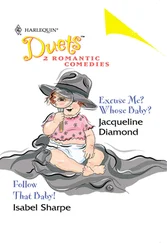The question made Sal uneasy, especially coming from a stranger. It was like being asked to guess someone’s age. “Houses round here… I’d wager they start in the low four hundreds.”
“Start, sure, not counting the add-ons, like floors, walls, a furnace. We’re stuck with a lemon. Nothing works, everything is falling apart. Last week, the roof was leaking. Yesterday the plumber was here to fix the disposal. And now you… but I’m keeping you waiting, you got a job to do, you probably want to get home to your wife. Come on in.”
huge, Dan, never before in the time of history has there been a sale this huge!
Um, Harry—
Not just big, Dan—
I think you got it backward.
Not even ginormous. It’s—
You know…
I know, Dan, I know, and I want our listeners to know how huge, really huge—
Harry, I think you mean in the history of time rather than in the time of history, not that it matters but —
Sal usually could predict from the look of a house how he would be treated by the owners. From the oversized hydrangeas that shone like plastic to the vinyl facade, he would have expected to be met by the brittle executive type, male or female, who called for a repair and then treated Sal with impatience, even vague disgust, as though the problem had originated with him. The owner of 37 Cider Mill Lane, in contrast, was welcoming; his friendly candor put Sal at ease as he led the way up the walk to the front door. There was even something faintly familiar about the man. Sal had a good feeling about him, as if they’d met long ago, in another context.
“Henry McCarter,” the man said, extending his hand.
“Sal Formosa.” Sal awkwardly bumped his belt pack against the entranceway as Henry led him inside. He straightened the buckle and then bent down, preparing to untie his boots.
“Go ahead and keep them on, Sal,” Henry said, adding, “we’re not clean freaks around here.”
Sal’s first impression of the house was that it was, in fact, freakishly clean, with sparkling wood floors, milk-white walls, and a gleaming mirror above the mantel. The two-story foyer extended into an expansive family room with panel screen doors that opened to the deck and a huge backyard. A teenage girl was sunk into the leather couch, watching a movie on her iPad. On the floor, a younger boy was building an unidentifiable structure with Legos. Neither bothered to acknowledge the electrician.
“There’s the culprit,” Henry said, pointing up at the chandelier. It was of a modern ebony wood variety, with linen shades and brushed nickel accents. Sal estimated the drop at fifty inches, plus the extra length added where the fixture had come loose, ripping the wires.
“That’s unfortunate,” Sal said.
“I’m meeting with my lawyer. We’re gonna go after the contractors, I tell you. And we’re not the only unhappy owners around here.”
“We get a lot of complaints from this development.”
“The question is, can you fix it?”
“I’ve fixed plenty worse.”
“Sal, you are my savior. Hey, you thirsty, you want a beer or something? Are you allowed to have a beer when you’re on a job? I mean, it’s almost the end of the day. How about a beer?”
“Sure, that would be welcome when I’m done. I just gotta carry in my ladder, and I’ll get going.”
But what, Dan? What matters is that it’s happening now, and it’s the biggest sale of the summer! Did I say biggest? No, I said huge, and you are hearing about it for the first time on WHIZ 102.2. So come on down to Hickey’s in Websterville and tell them you heard about the sale straight from Harry the Whiz. Now let’s ask our eye in the sky for an updated weather report. Dan, what’s it doing out there?
I’m looking out the window. The skies are clear and the sun is shining. Back to you, Harry.
Great news, listeners, it’s sunny in Websterville. Time is 8:15, and you know what happens at 8:15, Dan!
Story time, Harry.
That’s right, Dan. Are you ready for
The girl complained that she was hungry, her brother told her to shut up, she kicked at his Legos, crumbling a portion, the boy bit her in the ankle, the girl howled, and their father threatened to murder them both by vivisection if they didn’t behave.
“Dad, you’re gross!” The girl punched the sofa.
“What’s vivisection?” the boy asked.
Henry ignored them. “You got kids?” he called up to Sal.
Sal’s wrench slipped out of his hand, luckily landing on the ladder’s top rung. He made a grunting sound that Henry mistook as affirmative.
“Then you know what it’s like. I mean, what do you say to universal free boarding school for children ages six to eighteen! They try our patience, don’t they, Sal? They think they own the world.”
“Dad.” The girl beat up the cushion again, this time with the top of her head.
“How does your wife handle it? I bet she is a sweetheart, you must have a nice family waiting for you at home, Sal. Not like my family. My wife’s the main breadwinner. I’m a kept man, I’ll say it, I’m not ashamed. The missus is a dermatologist, she makes a good living shooting up housewives with Botox. We have Botox to thank for 37 Cider Mill Lane. Does your wife do Botox, Sal? I bet she’s got natural good looks. A man like you wouldn’t settle for anything less.”
It became apparent only gradually to Sal, as he struggled at the top of the ladder to keep his balance, huffing from the effort, his fingers deep inside the chandelier’s junction box, that the man named Henry had leaped to assumptions about Sal’s personal life that now would be difficult to correct. It was true that Sal had had a wife once; he’d even had a son. But his wife had moved to Arizona twenty years ago and taken the boy with her. Sal used to see the boy once a year, then once every few years, and then not at all, and so wasn’t able to say goodbye when the boy, after joining the marines, was shipped to Kabul, where he was killed eight months later in an IED attack. None of this could be communicated by Sal from the top of a ladder, so he decided to keep his mouth shut. While he attached the new wire to the socket and bolted the bracket into the ceiling, he let Henry rattle on about family life. By the time Sal climbed back down the ladder, the rung locks squeaking from his weight, he found himself caught in such a thick web of presumption that there was nothing to do but play along.
a doozy, Dan?
I’m ready, Harry.
Okay, Dan, it begins like this. Me and my wife, we decide to upgrade, you see, and we’re looking around for a new house, something flashy—
Nothing less than a cardboard McMansion for Harry the Whiz.
Rub it in, Dan, go ahead. So we hear about the new development at Dunkirk.
Maybe they shouldn’t have called it after a battlefield, Harry.
Maybe they shouldn’t have built it in the first place, Dan. Anyway, like I was saying,
Sal was not normally a liar. He viewed lying in the same realm as acting, and he was not inclined to do it without training. That said, he had always envied actors their ability to hide inside their pretend selves. He’d had a brief experience in theater as an adolescent when he was cast as a photographer in a high school production of Anything Goes . He had enjoyed the whole experience and especially loved popping out to the front of the stage and making the flash go off on his camera. But it was clear he didn’t have the looks for a future in theater; instead he spent his later years in school working on the stage crew. That was how he got interested in wiring. Through his life, he had never lost his love of theater. Currently, he served as the volunteer electrician for the Websterville Community Theater group. He was in the audience for every show, available in case something went wrong.
Читать дальше












